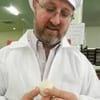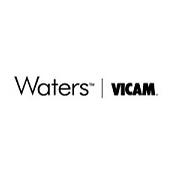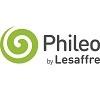Serology after ts-11 and MSH mycoplasma vaccination
Published: February 10, 2021
By: Chris Morrow / Bioproperties, 36 Charter St, Ringwood, Vic. 3134 Australia.
Live ts mycoplasma vaccines were created to be safe but still immunogenic. So how can we assess this immunogenicity in the field? This bulletin condenses the experience of 20 years trying to monitor vaccine response and differentiate problems from normal responses. Various approaches have been taken to improve serological monitoring (for example, cloned homologous antigens) and understand problems but the conclusion is that humoral antibody is not the mechanism of protection of these vaccines and is not even correlated with protection. The results are disappointing with very little being offered by serological testing of vaccinated flocks. Indeed it has been suggested that serological testing of these flocks is confusing and a waste of money and resources.
Serological responses to ts-11 and MSH vaccination
The serological responses to these vaccines are variable and of limited use to monitor field challenge or vaccine administration. It could be argued that serological testing of vaccinated flocks is a waste of money. The idea that titre cut-offs can be used for differentiating vaccinated from infected animals does not work in practice. Even in Newcastle disease infection, this has had to be discarded especially as vaccines have been improved. In mycoplasma serology in vaccinated animals, it is even more unreliable.
In contrast to infection with most mycoplasma field strains (rapid and to high levels of antibody), the serological response to ts-11 and MSH vaccination is slow and may not be strong. In the laboratory, vaccination of SPF white leghorns by eye drop at three weeks of age will see the development of mild agglutinins after 4 weeks. In the field this is even more complicated. This variation may be associated with the amount of tracheitis (possibly increasing antigen seen by systemic immune system) the birds are experiencing at the time of vaccination. It has been suggested that perhaps the tracheitis is a more important determinant of the variation in serological response than the vaccine.
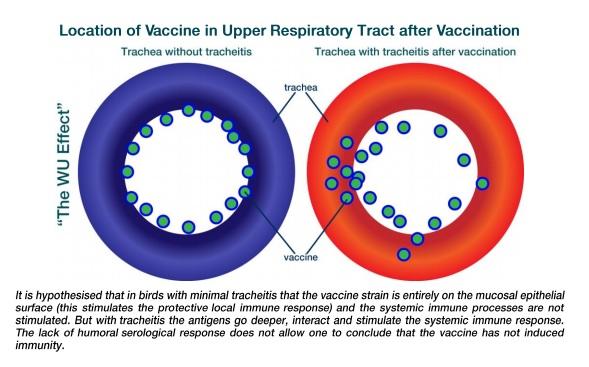
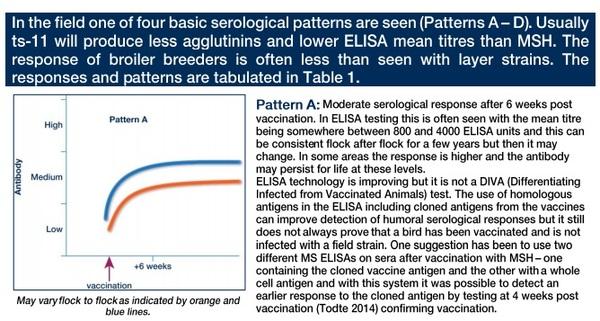
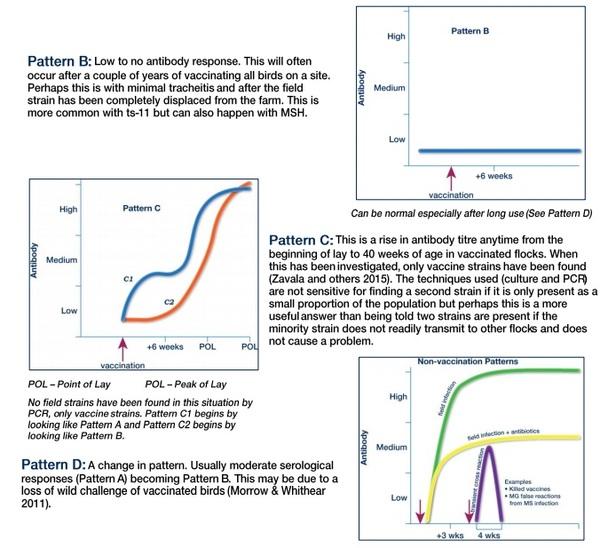
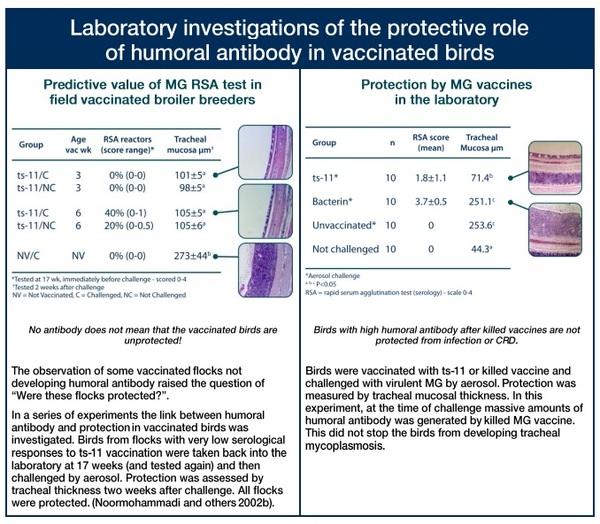
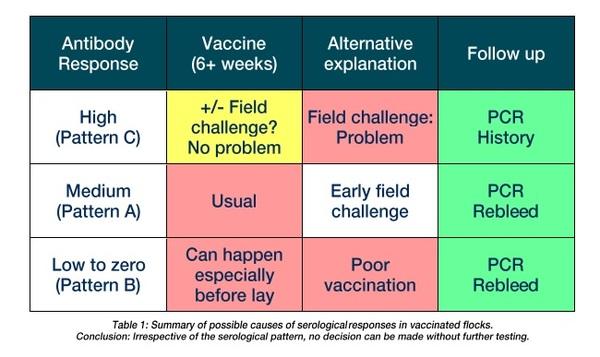
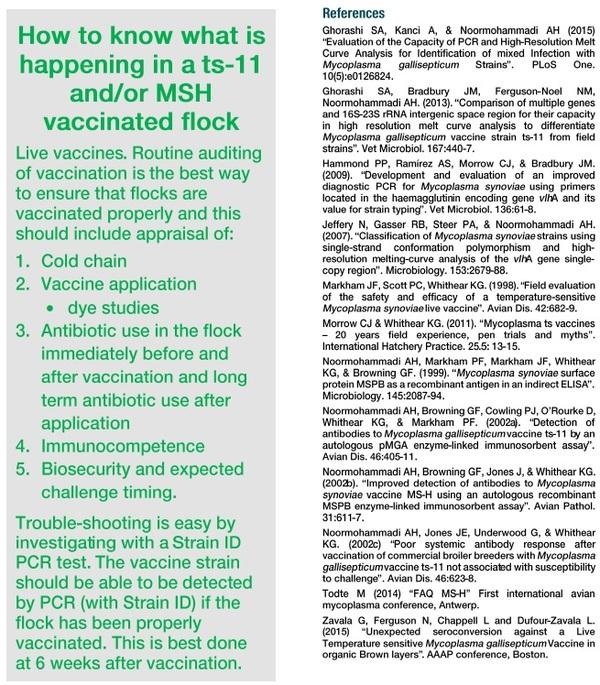
This article was originally published as Bioproperties Technical Bulletin 2015-02. Also available on www.bioproperties.com.au,
Related topics:
Authors:
Bioproperties PTY Ltd
Recommend
Comment
Share

Would you like to discuss another topic? Create a new post to engage with experts in the community.
